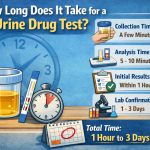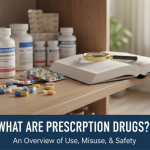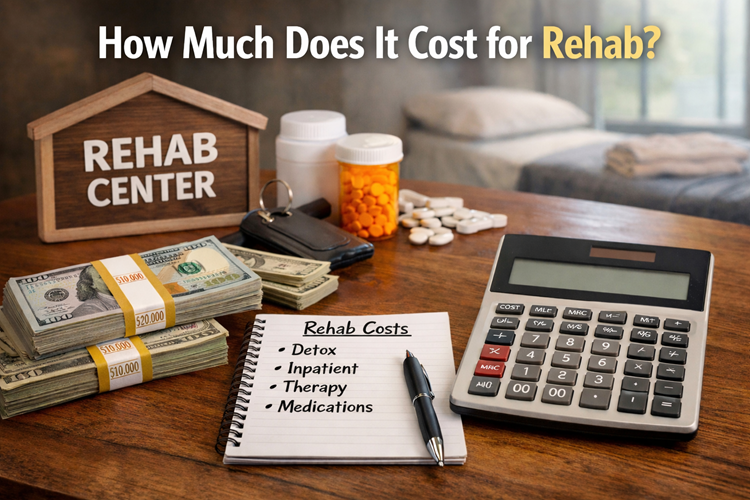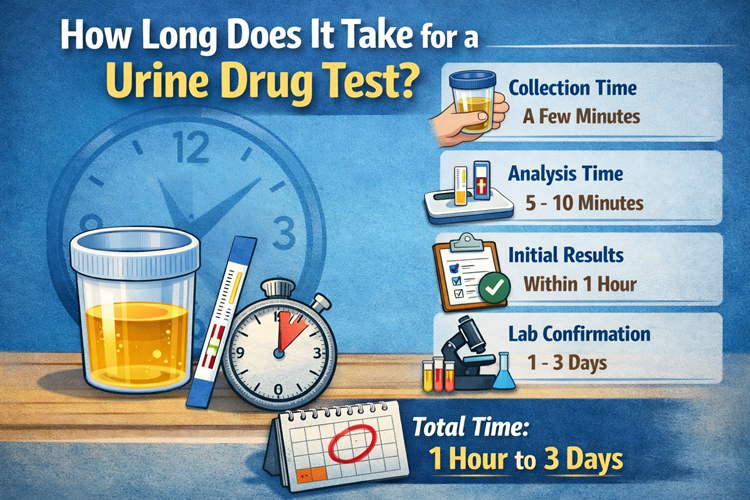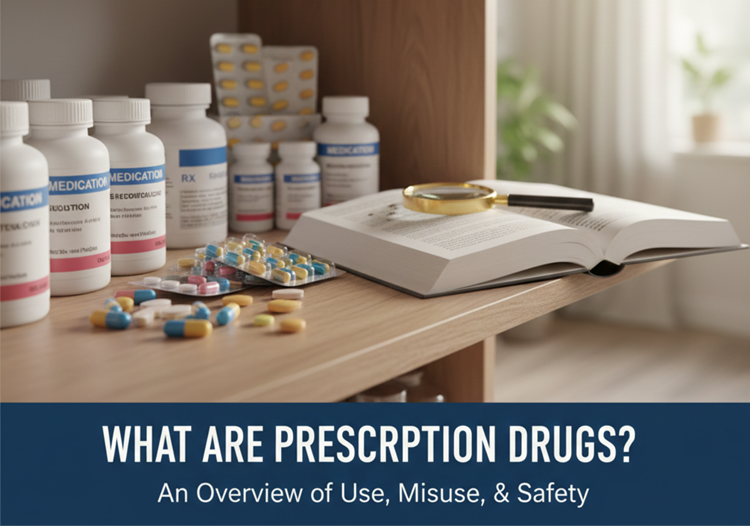Choosing the right intensive outpatient program (IOP) is one of the most important decisions someone can make in their recovery journey, or when helping a loved one take that first step toward sobriety.
In Central Florida, where addiction rates are rising and access to care varies by county and provider, the right IOP can make all the difference in long-term outcomes. But with a flood of treatment centers offering various claims, features, and therapeutic approaches, how do you know what’s credible, what’s effective, and what’s best for your specific needs?
This article will help you navigate the IOP selection process in Central Florida, armed with evidence-based guidance, clear criteria, and local insight.
What Is an Intensive Outpatient Program (IOP)?
An IOP is a structured form of outpatient treatment for individuals dealing with substance use disorders (SUDs), co-occurring mental health issues, or both. Unlike inpatient rehab, which requires clients to live at the facility, IOPs allow clients to maintain their daily responsibilities—such as work or school—while attending treatment multiple times per week.
Typically, an IOP includes:
- 9–15 hours of therapy per week
- Group counseling, individual therapy, and psychoeducation
- Relapse prevention planning
- Family involvement or therapy
- Case management and drug testing
It’s often recommended as a step down from inpatient rehab or as a primary option for individuals with moderate addiction severity.
Why Choosing the Right IOP Matters
According to the Florida Department of Health, opioid-related deaths in the state have increased nearly 33% since 2019. Central Florida counties like Orange, Seminole, and Volusia have been particularly affected, with fentanyl and methamphetamine listed as top drivers of overdose deaths.
An effective IOP not only helps prevent relapse but also equips participants with sustainable recovery tools, supports mental health stabilization, and improves family and social functioning. On the flip side, a poor match—or a low-quality provider—can waste critical time, money, and even erode trust in the recovery process.
100% Confidential Support is Available 24/7
No matter what you’re going through, you’re not alone. Our dedicated team is here to provide a safe, judgment-free space where you can talk openly and honestly. Whether you need emotional support, resources, or just someone to listen.
We’re here for you—completely confidential and always respectful of your privacy. Call us today!
Key Factors to Consider When Choosing an IOP in Central Florida
Accreditation and Licensing
Start by confirming that the IOP is licensed by the Florida Department of Children and Families (DCF). Accreditation from organizations such as CARF (Commission on Accreditation of Rehabilitation Facilities) or The Joint Commission signals that the facility meets national standards for quality and safety.
Accreditation ensures clinical practices are monitored, staff are properly trained, and the program is held accountable through ongoing review.
Evidence-Based Treatment Modalities
Top-performing IOPs use evidence-based practices (EBPs), such as:
- Cognitive Behavioral Therapy (CBT)
- Dialectical Behavior Therapy (DBT)
- Motivational Interviewing (MI)
- Trauma-informed care
- Medication-Assisted Treatment (MAT) when appropriate
Ask specifically which therapeutic methods are used and how they’re integrated into programming.
Tailored Programming and Flexibility
Every recovery path is different. A quality IOP should assess each client’s clinical needs and build a personalized treatment plan. Look for:
- Day and evening session options
- Weekly progress reviews and treatment updates
- Specialized tracks (e.g., for teens, professionals, or dual diagnosis clients)
In Central Florida, where many clients juggle work and family obligations, flexibility is crucial.
Dual Diagnosis Capabilities
Substance use often co-occurs with mental health issues like depression, anxiety, or PTSD. In fact, nearly 50% of people with an addiction also have a co-occurring mental health condition.
If you or your loved one is dealing with both, choose a program with licensed mental health professionals on staff and a clear protocol for integrated dual diagnosis care.
Family Involvement and Support
Recovery doesn’t happen in isolation. Strong IOPs involve the family in the healing process through:
- Family education sessions
- Multi-family group therapy
- Opportunities for direct involvement in treatment planning
This is particularly vital in communities across Central Florida, where generational substance use and systemic trauma are often factors.
Location and Accessibility
While telehealth options have grown, many clients benefit from in-person connections. Proximity matters, especially when transportation is an issue.
Some of the more well-established recovery centers are located in urban hubs such as Orlando, Winter Park, and Lake Mary. However, high-quality programs can also be found in Melbourne, Ocala, and Daytona Beach.
Aftercare and Alumni Support
A good IOP prepares clients for life after treatment. This includes:
- Relapse prevention planning
- Continued therapy or check-ins
- Access to alumni meetings or sober events
Ask whether the program offers transitional services or helps link clients to community-based recovery groups like NA, AA, or SMART Recovery.
Contact Solutions Healthcare
Battling with Drug and Alcohol Addition? Remember, you are not alone and we are here to help you!
Questions to Ask Before Enrolling
Before committing to an IOP, schedule a consultation and come prepared with questions like:
- What’s your client-to-therapist ratio?
- Are services offered in Spanish or other languages?
- What is your staff’s training background and licensing?
- How do you involve family in treatment?
- What happens if a client relapses during IOP?
Don’t be afraid to shop around. A high-quality provider will welcome these questions and provide clear answers.
Red Flags to Watch For
Not all IOPs are created equal. Be cautious of programs that:
- Guarantee “quick” or “total” recovery
- Emphasize luxury amenities over clinical services
- Avoid talking about relapse or aftercare
- Lack of licensed professionals or accreditation
- Use high-pressure sales tactics
In Central Florida, unlicensed and unethical treatment centers have unfortunately become more common, particularly in high-need areas with few regulatory checks. Always verify a facility’s credentials through Florida DCF’s Provider Search tool.
Final Thoughts: Take Your Time, But Don’t Delay
Finding the right intensive outpatient program can feel overwhelming, especially when emotions are high and time feels short. But with careful research, honest conversations, and attention to the criteria outlined above, you can make a confident and informed decision.
Central Florida offers a wide range of IOPs—from Orlando’s larger behavioral health systems to smaller community-focused providers in Brevard, Marion, and Volusia counties. The key is not just to choose any program, but the right one. And remember: recovery is not linear. Progress comes in steps, not leaps. Choosing an IOP is a powerful one.
Solutions Healthcare offers comprehensive treatment and support for people struggling with substance use disorder (SUD). If you or someone you love needs help to overcome SUD, contact our specialists to explore treatment and schedule an intake appointment.
100% Confidential Support is Available 24/7
No matter what you’re going through, you’re not alone. Our dedicated team is here to provide a safe, judgment-free space where you can talk openly and honestly. Whether you need emotional support, resources, or just someone to listen.
We’re here for you—completely confidential and always respectful of your privacy. Call us today!
Frequently Asked Questions (FAQ)
1. How long does an IOP typically last?
Most Intensive Outpatient Programs run for 8 to 12 weeks, but duration can vary based on individual progress and clinical recommendations. Some programs offer extended support or step-down levels of care to facilitate a smooth transition after the core IOP concludes.
2. Can I work or go to school while attending an IOP?
Yes. IOPs are designed to be flexible. Many offer evening or weekend sessions to accommodate work, school, or caregiving responsibilities. It’s essential to discuss your schedule during intake so that the program can be aligned with your availability.
3. What happens if someone misses a session?
Attendance is crucial in IOPs, but providers understand that life can be unpredictable. Most programs have clear attendance policies and may allow a limited number of excused absences. Chronic no-shows, however, could result in dismissal or a need to reevaluate treatment readiness.
4. Are virtual or telehealth IOP options available in Central Florida?
Yes. Since the pandemic, many Central Florida IOPs have integrated telehealth services, either as a supplement or a primary mode of treatment. These can be effective for individuals in remote areas or those with mobility challenges, although in-person interaction is often recommended when possible.
5. Is drug testing part of the IOP process?
Generally, yes. Most reputable IOPs include regular drug and alcohol testing to monitor progress, ensure accountability, and support recovery goals. The frequency and method (e.g., urinalysis, oral swabs) can vary by program.
6. Can an IOP help with legal or court-mandated treatment requirements?
Many IOPs work with probation officers, courts, or child welfare agencies and can provide documentation or progress reports if required. Be sure to inform the intake team if you’re participating as part of a legal mandate so they can coordinate accordingly.








